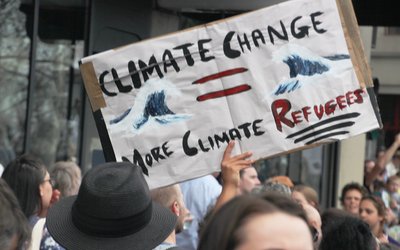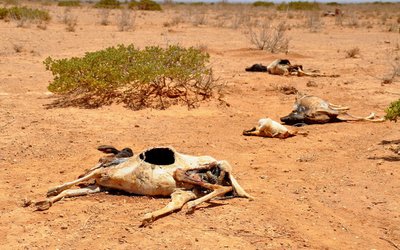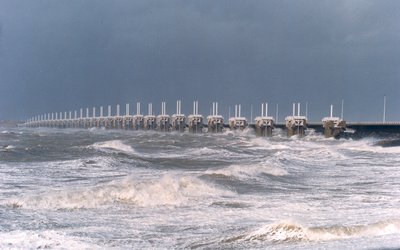
Concerns about the implications of climate change for security through its impact on hydrological resources have been expressed at the highest political level, but research has still not established a causal link between hydro-climatic variability (or water scarcity) and international or civil violence. Although under certain social conditions they might aggravate the risk of conflict, water scarcity and climate change are overall not found to have an important association with armed conflict, especially if compared to poverty and dysfunctional institutions.
Things may change in the future, though. Water may become a cause of war in the future due to climate change and wars may not be fought over water, but caused by consequences of its scarcity, e.g. rising food prices or scarce arable land.
The link between climate change and security threat is not as simple as often presented in the media:
- violence creates vulnerabilities that then make parts of the population more susceptible to direct damages from hydro-climatic change. Rather than climate change and water scarcity, it is political and economic factors that generate vulnerabilities that threaten the security of populations.
- dismantling of good institutions increases the likelihood of problems.
- in certain instances conflict may change institutions and/or reduce vulnerabilities in ways that enhance human security. Some researchers have argued that the Arab revolts were linked to drought and to the rise of grain prices. The Arab revolts may have had socially positive effects. Econometric studies confirm a link between droughts and democratic transitions for sub-Saharan countries.
- certain adaptation interventions (land-grabs or large dams) may generate conflict (mostly non-violent, and maladaptations may increase the vulnerability and undermine the security of certain parts of the population.
- what is good at one scale (e.g. national) may be bad at a different scale (e.g. human). A large dam that increases energy and national security may undermine the human security of local communities at its vicinity.
To reduce vulnerability, pertinent democratic and social/civil security institutions should be strengthened where they exist, and promoted where they are still absent.
Source: Kallis et al., 2014. Climatic Change 123: 69–82
Photo: PEOSoldier (www.flickr.com)








